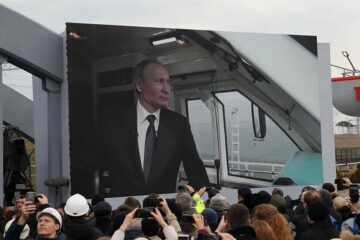Russia’s Crumbling Infrastructure and Winter Woes

As Russia grapples with a harsh winter, its aging infrastructure is crumbling, leaving many citizens in freezing conditions, while the government continues to prioritize military spending for the ongoing war in Ukraine.
Infrastructure Challenges
The bitter winter has exacerbated issues with Russia’s outdated infrastructure, much of which dates back to the Soviet era. Reports indicate that heating systems are failing across the country, leading to widespread discomfort and even endangering lives. In December, temperatures in Siberia plummeted to as low as -70 degrees Fahrenheit, amplifying the severity of the situation.
Infrastructure Failures
Numerous incidents of heating system breakdowns have been reported since December, affecting regions including Moscow and St. Petersburg. In one alarming case in Nizhny Novgorod, over a dozen people suffered burns when a large heating pipe burst, flooding the streets with scalding water and leaving thousands without heating.
Funding Priorities
Despite the urgent need for infrastructure upgrades, Russia’s expenditure on public utilities remains disproportionately low, accounting for just 2.2% of total spending last year. In contrast, a significant portion of the budget—approximately 21%—is allocated to military expenses. With defense spending expected to increase further this year, as the war in Ukraine persists, the strain on the budget is evident.
Budgetary Concerns
As the financial toll of the war mounts, the Kremlin may need to implement austerity measures to address Russia’s budget deficit. UK intelligence reports suggest that such measures could become necessary in the near future. Nevertheless, President Vladimir Putin remains poised for reelection in March, despite public dissatisfaction with the state of communal services.
Public Perception
Denis Volkov, director of the Levada Center, an independent research organization, noted that while citizens are discontent with the deteriorating state of infrastructure, they perceive it as a chronic issue. Although infrastructure failures provoke frustration, they are not surprising to the populace, reflecting a resigned acceptance of the ongoing challenges.













